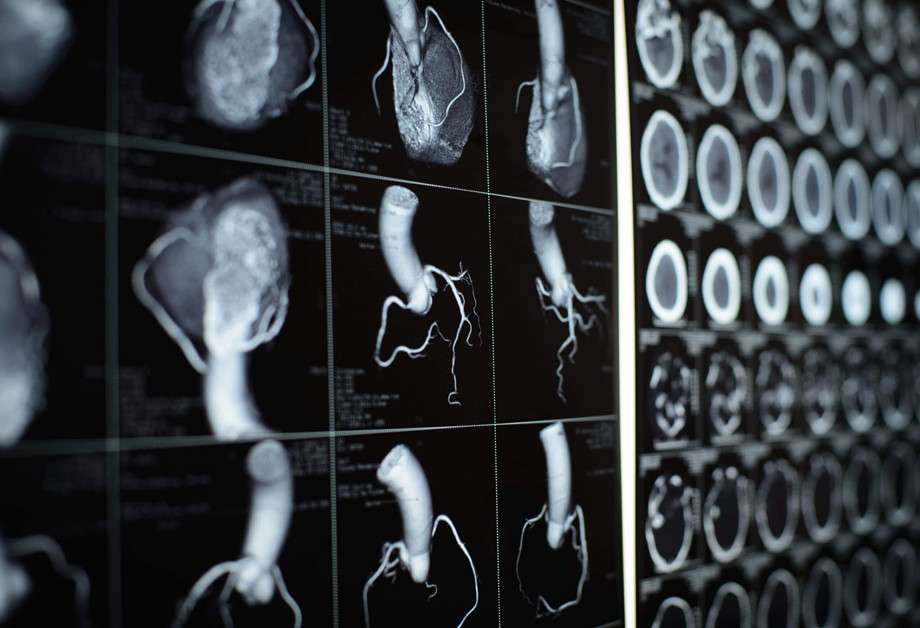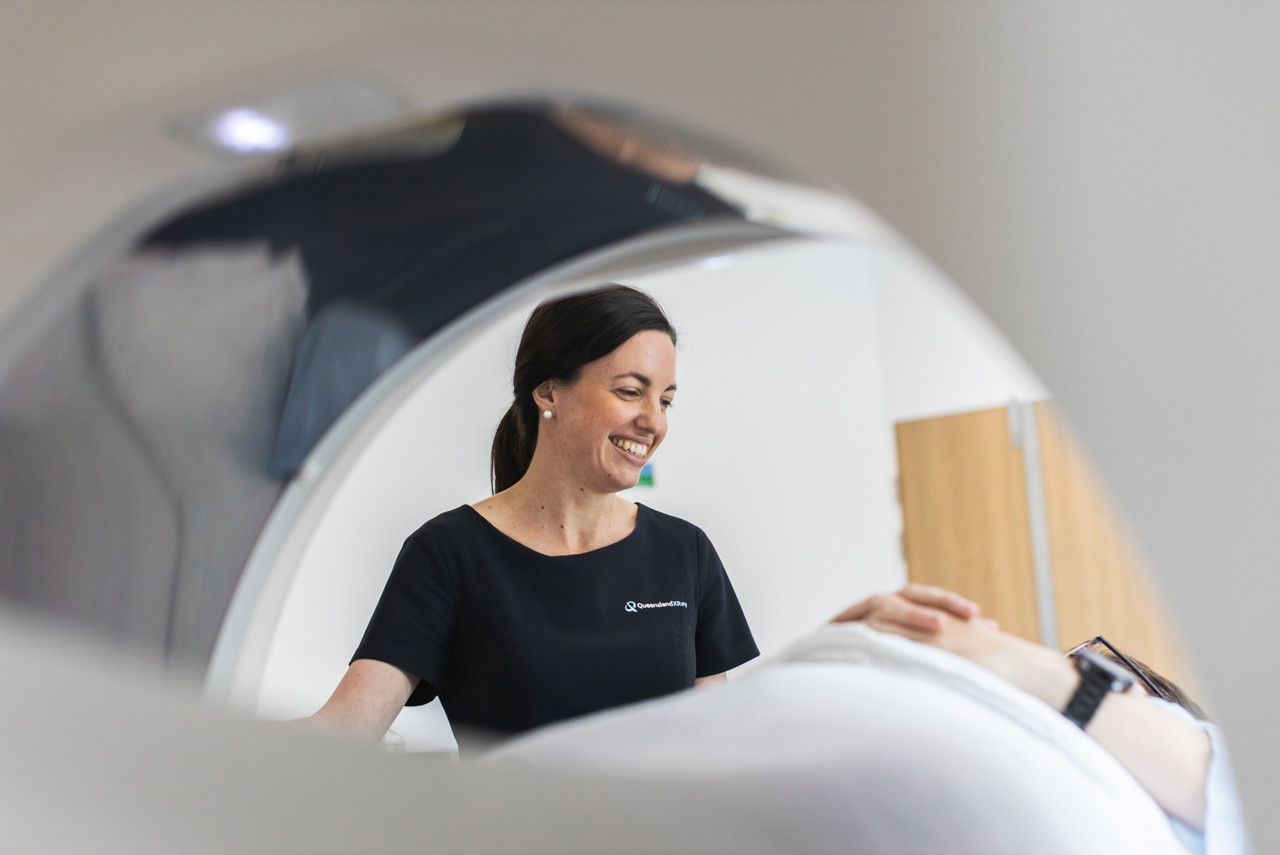CTCA is a specialised type of CT scan that is used to detect narrowing of the coronary arteries that may affect blood flow to the heart muscle causing chest pain (angina), or that may increase the risk of a heart attack. CTCA differs from a CT Calcium Score in that it can detect non-calcified cholesterol deposits in the arteries that may narrow the vessel but are also possibly at risk of causing sudden vessel blockage (heart attack) without treatment.
As the heart is in almost constant motion, we require your heart rate to be at a certain level to enable motionless images of the heart vessels. This will depend on various factors such as your blood pressure, general medical condition, and any specific cardiac conditions. The supervising radiologist or cardiologist on site will determine what is appropriate and safe for you. Preparation may take up to 90 minutes.
The test itself is relatively quick and involves cannulation, spray or tablets under the tongue to dilate the vessels, injection of contrast (X-ray dye), and short periods of holding your breath.
CT Coronary Angiography FAQs
-
- Please do not have any caffeine for 24 hours prior to your appointment (including cola drinks, tea, coffee and chocolate). Drinking water is fine and we recommend you remain hydrated.
- Please do not exercise in the 12 hours prior to your scan. It is also important that you do not use any Viagra type medications in the 48 hours prior to your scan.
- Please do not eat or drink anything in the 4 hours leading up to your scan.
- We will ask you to arrive early for your exam, as we need to determine your heart rate and get you ready for the scan.
- You will be asked to change into a gown. Wearing a two-piece outfit can make this easier for you.
- If you are taking any regular medications, it is important to take them as usual unless otherwise instructed by your doctor or the medical staff at Queensland X-Ray. Tablets can safely be taken with a small sip of water even close to your appointment time. Please have a list of your medications and any allergies you may have to give to our nursing staff.
- Your referring doctor may provide you with tablets to reduce your heart rate prior to your scan with instructions on when to take them; however, some referrers prefer that we administer the tablets as required on the day of your appointment. Either way our goal is to make you as comfortable as possible and optimise your heart rate, ensuring the quality of our scans is the best it can be.
- The medication you may need to take will be a beta-blocker, a calcium channel blocker, or medication directly slowing the heart within safe limits. Since the medication affects your heart rate, having a designated driver is required as a safety precaution.
-
- The radiographer will explain exactly what will happen during your procedure. It may vary slightly from what we describe below, so do not worry if this is the case. You will always be in very good hands.
- On arriving for your appointment, your heart rate will be taken to see if you need any additional medication to slow your heart rate. If medication is required, there will be a waiting period of up to 60 minutes for it to take effect.
- A set of electrocardiograph (ECG) leads will be placed on your chest for the duration of the scan. This will measure your heart rate and is a key part of the scan we are performing on your heart.
- The Computed Tomography (CT) scanner looks like a doughnut (the technical word for it is a gantry), with a bed passing through the middle. You will be asked to lie on the bed as still as you can as the bed moves through the opening in the gantry. The gantry is not a long narrow tunnel – it is actually quite wide and short.
- Throughout your examination, you will be asked to hold your breath several times for no longer than 10 seconds at any one time. This helps us take the best possible pictures of your heart.
- We will insert an intravenous (IV) cannula into your arm to give iodinated contrast during the scan, which will enhance the images we take of your heart, outlining the inside of the heart and blood vessels. You may feel a hot flush for a moment as the contrast enters your body or a metallic taste in your mouth. This is perfectly normal and only lasts a few minutes. Over the course of the day the contrast will be passed out of your body via the kidneys without noticeable effect.
- Following this procedure, you will be asked to remain in the practice for approximately 30 minutes so we can monitor your heart rate and blood pressure while they return to normal.
-
The scan itself does not take long, but please allow at least two hours for your appointment, taking into consideration preparation and recovery.
-
At Queensland X-Ray, we use a range of CT scanners, all of which provide low-dose radiation.
During a CT Coronary Angiogram appointment, patients will be cared for by our imaging team members, which include radiographers, nurses, and clinical support workers. It is important that we can make you as comfortable as possible during your time with us.
-
The cost of scans are subject to variation based on several factors. We will inform you of the CT Coronary Angiography price at the time of booking. If you have any questions about costs or Medicare eligibility, please feel free to contact us, and one of our team members will be happy to assist you with your query.
-
To make a CT Coronary Angiography appointment with Queensland X-Ray, access our portal here.

How much will it cost?
Fees for radiology procedures will vary depending on a variety of factors. We will advise you about the cost of your service at the time of booking but if you do have any questions, contact us and one of our team will be happy to help with your query. You can read more about our billing information here.
How do I access my images?
At Queensland X-Ray, we provide our patients with their images and results online. To access your images and results, you’ll need to register for an account when you visit one of our practices. If you’ve already registered, you can access the Patient Portal here.

